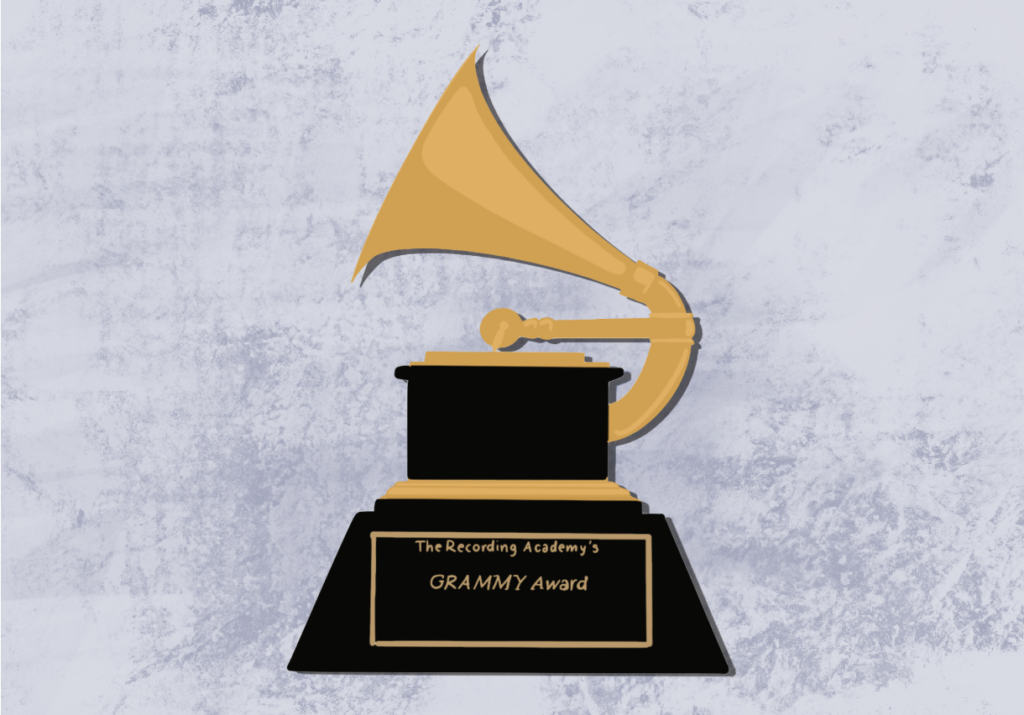
The annual Grammy Awards is a live television must-watch for America’s biggest music fans. With its live performances, heartfelt speeches, and comedic hosts, there is no wonder the event has held the attention of audiophiles for 64 years. On February 5, 2023, over 75 gramophone-shaped, golden statuettes were distributed to the songwriters, singers, instrumentalists, and producers the Recording Academy (NARAS) deemed worthy of praise.
While the Grammys make a commendable effort to celebrate the diversity of music by recognizing 91 different genres, their major category winners often fail to reflect the varying opinions of those outside of the voting room. A prime example of the disconnect between panel and people is folk singer Bonnie Raitt’s shocking win in the Song of the Year category.
For most categories, members of the Recording Academy select nominees and choose award recipients in only the genres they specialize in. However, for the Big Four — Album of the Year, Record of the Year, Best New Artist, and Song of the Year — all Academy voting members vote regardless of their areas of expertise.
Nominated with some of the most popular and acclaimed songwriters such as Beyoncé, Taylor Swift, and Adele, Raitt’s victory raised some eyebrows. So, why exactly did she win? Considering the demographics of the Recording Academy, and the older panelists’ affinity towards long-standing artists like Raitt, her triumph is not surprising at all.
After public scrutiny caused the Recording Academy to rethink its demographic distribution in 2019, the 2022 members reflect more diversity than ever. To become a voting member of the Recording Academy, artists must receive two recommendations from peers in the music industry and submit a resumé that proves they have a primary career focus in music. Then, it is up to the discretion of a peer-reviewed panel of music professionals to approve membership.
Still, the nearly 2,000 members of the Academy do not adequately represent the global music community. For some quick statistics: 52% of voters are male, 33% are white (compared to 25% African American and 10% Hispanic), and 33% report they specialize in or prefer to listen to pop music.
Leaving the fate of such a prestigious prize to such a limited group of people is a shallow approach to appreciating music. It fails to recognize the personal connection that listeners have with their favorite songs. The Recording Academy should consist of experts who, at their core, are concert-goers and headphone-wearers just like the rest of us. After all, the music industry could not exist without the support of its passionate fans.
Big Four nominees, with the exception of Best New Artist, tend to be the same few musicians who create for the same few genres — for example, pop artists like Lizzo and Harry Styles, whose songs regularly have mainstream radio success. While these people are undeniably talented and have garnered a devoted audience for a reason, there is so much beautiful musical creation that takes place outside of A-Listers. The Grammys should not be a competition of who has the most hits or highest streams, but of who can create a transcendent experience for their audience.
It is worth recognizing that the Grammys’s relevance in terms of artists’ success has waned in recent years. With social media platforms like TikTok and Instagram Reels, whose entire brands are fusing videos and music, musicians do not necessarily need the support of the Grammy Awards to become known. Even so, it does represent a certain amount of career merit, to be seen and honored.
Good music is more than quality production and textbook musicianship. It is the melodies that make us dance in the shower, the lyrics that make us cry when we realize they are frighteningly reflective of our lives, and the songs we blast in the car, singing every word at the top of our lungs. It is not a mysterious panel that has never heard of our favorite artists before, it is us.
Let the Grammys be a celebration of music and the people who embrace it. Let the public vote, let the music we listen to be the music that is recognized, and let the Grammys be an award show that honors the music that drives us all.




